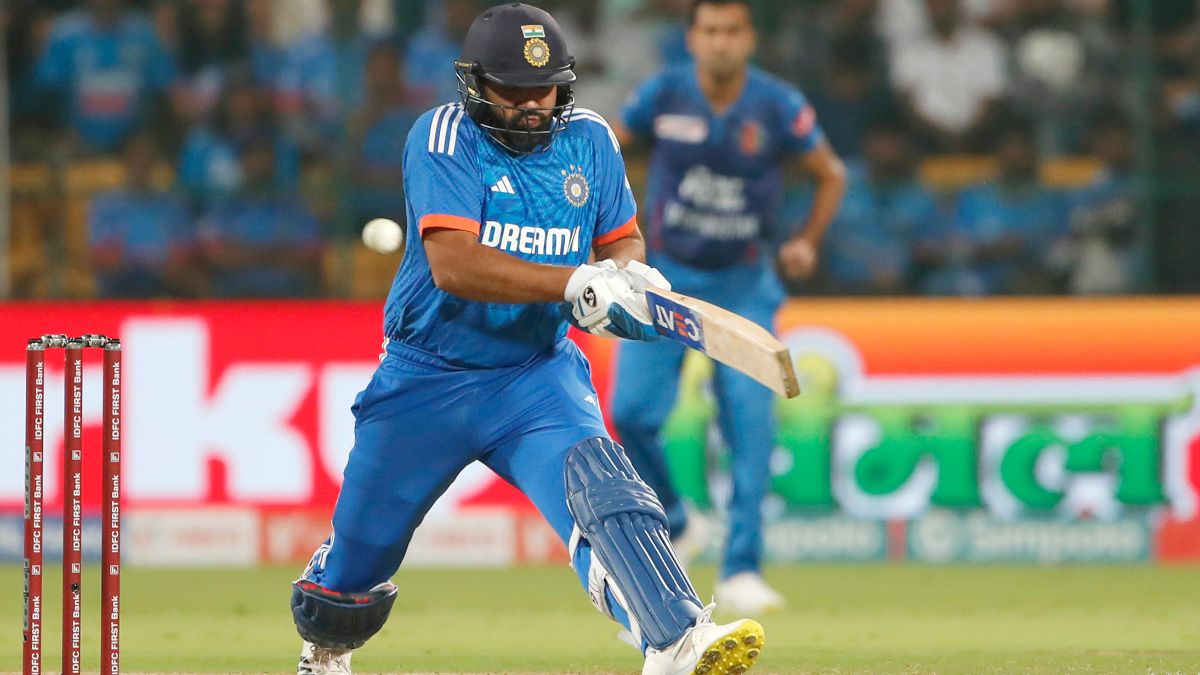- By Himanshu Badola
- Thu, 18 Jan 2024 10:16 AM (IST)
- Source:JND
T20I Super Over Rules, India vs Afghanistan 3rd T20I: Rohit Sharma was on song with the bat in the 3rd T20I match against Afghanistan at the M.Chinnaswamy in Bengaluru on Wednesday, January 17.
Rohit compensated for his failures in the first two matches with a remarkable century in the third game, his fifth in the shortest format as he marked his return to the side in style.
Apart from his century, there was another instance involving Rohit that caught massive attention as the skipper made his way back to the pavilion, declaring himself in the first super over of the game.
ALSO READ: Rohit Sharma Surpasses MS Dhoni To Become India's Most Successful T20I Captain
It is to be noted that Afghantsna leveled India's score 212 while chasing and forced the game to go into super over.
The visitors batted first in the Super Over and set India a target of 17 runs.
Rohit, who already had batted for the whole 20 overs, came out to bat with his opening partner Yashasvi Jaiswal.
The veteran smashed two sixes to take India close to target but Jaiswal had the strike in the final ball with the hosts needing two runs.
ALSO READ: Rohit Sharma's Hilarious Banter With Umpire During 3rd T20I Goes Viral
It was the moment when Rohit declared himself retired ahead of the last ball, bringing out Rinku Singh at the non-striker's end to run as fast as possible for the winning runs.
The decision was taken in the light of the fact that Rohit had batted and fielded for 20 overs each and he must have felt exhausted to run as fast as possible in that crunch situation.
The decision proved to be on the spot as Jaiswal missed out on the hit with the ball reaching the wicket-keeper but Rinku made it to the crease to make sure of another Super Over.
However, Rohit came out to bat in the second Super Over with Rinku alongside, despite getting retired in the first. Afghanistan coach Jonathan Trott was perplexed and was seen discussing with the match officials ahead of the beginning of the second super over.
However, as it turned out, Rohit's involvement as a batsman in the second super over was all but legal. as per the T20I Super Over Rules.
Can a dismissed batter allowed to be involved in 2nd Super Over?
As per the ICC's playing conditions for Men's T20Is: "Any batsman dismissed in any previous Super Over shall be ineligible to bat in any subsequent Super Over."
There, however, was no confirmation whether Rohit had been 'retired out' or 'retired not out'.
In case of the former, he would've been ineligible to bat again when the second Super Over came about. But he walked out and got all the 11 runs that India scored the second time around.
Rohit retired from the first over but was not dismissed.
Checkout T20I Super Over Rules:
In case of the 'retired not out', Clause 25.4.2 of the ICC playing conditions for men's T20Is states: "If a batsman retires because of illness, injury or any other unavoidable cause, that batsman is entitled to resume his innings. If for any reason this does not happen, that batsman is to be recorded as 'Retired - not out'."
"If a batsman retires for any reason other than as in clause 25.4.2, the innings of that batsman may be resumed only with the consent of the opposing captain."
